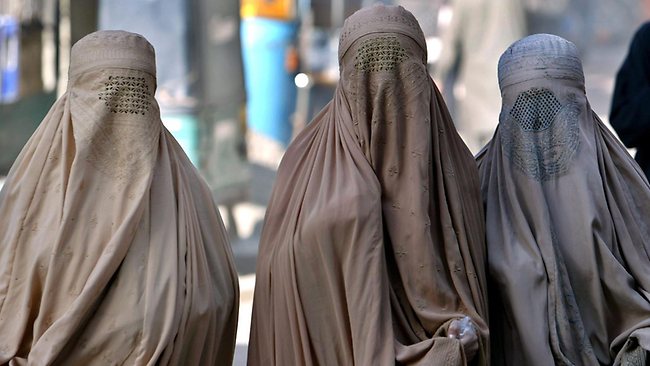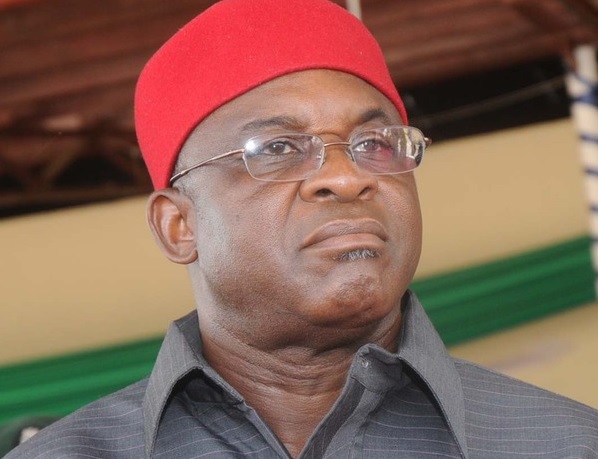Nigerians should have President Muhammadu Buhari’s back for the profound and courageous manner in which he is addressing the well-orchestrated but whimsical call to have the downstream of the petroleum sector fully deregulated.
Knowing that full deregulation is a euphemism for subsidy removal, the President’s damning verdict on this agitation is that it “lacks depth” and that the reason for removal is not just good enough. While not ignoring the need for further review of the current situation, he says he will, instead, prefer immediate reforms that will instill transparency and accountability in the programme that costs taxpayers billions of dollars in fraudulent claims.
“We have to go back to the good old days of transparency and accountability”, he told the officials from the Ministry of Petroleum, Nigerian National Petroleum Corporation and other allied agencies who attended a briefing session with him at the State House on Monday. And like a man who has more than a fair knowledge of that corruption-prone sector, the President directed NNPC to go and review existing agreements for the swapping of crude oil for refined products that Nigeria has with a few countries.
Rather than allow a subsidy removal exercise that may likely trigger inflation, Buhari said immediate task is to address the lack of security, sabotage and vandalism as well as corruption and mismanagement in the sector. As a panacea to addressing product scarcity and inherent fraud in the payment of subsidy, this is preferable, in Buhari’s wisdom, than allow fuel importers bring in refined products for sale at market prices that may range between N150 and N180 a liter without government cushioning the effect on the masses.
Advertisement
I cannot agree any more with the President on this score. His intervention is in sync with the views that I have always expressed on the subsidy debate: the Nigerian masses should not be made to pay for the mismanagement and corruption that created the need for fuel importation in the first place! Quick fixes may have their own appeal, as the governors who once championed the need for subsidy removal had wanted, but they will not fully address the rot in the system and the fact that there is nothing beguiling in having a major oil producer becoming a perennial fuel importer that sells to its citizens at international price.
One major development, of course, brought us to this painful juncture: the extreme profligacy of Goodluck Jonathan’s administration that saw subsidy payments frog-jumped from N230bn in 2010 to N1.3trn in 2011. No one needed a soothsayer to guess that the inexplicable hike was caused by the April 2011 election. Having created an unsustainable template that saw a quarter of national budget going for subsidy payments, Jonathan’s administration had no choice, subsequently, than to cause an astronomical hike in fuel price and then lamely call for deregulation that was designed to have Nigerians pay for the waste carelessly or deliberately created by the government.
In the heat of the mass revolt against that hike in petrol pump price, I had written an essay on January 12, 2012 that relied substantially on the argument of a gentleman called Demo Adewusi, whom I had never met but whose opinion on the subsidy imbroglio I held dearly. My conviction that it was an extreme case of corruption and impunity that brought us to this level is also strengthened by the informed opinion of a former Chevron staff and respected publisher of Africa Oil and Gas Report, Toyin Akinoso, whose Looking Beyond the Diezani Tenure article in January was a classic revelation on how lack of supervision and deliberate connivance by the former Minister of Petroleum largely contributed to the unprecedented sleaze in the oil sector that nearly brought Nigeria on her knees.
Advertisement
There is yet another gentleman by the name Onyebuchi, whose article – Nigeria’s Fuel Crisis: Why I blame GEJ – widely circulated on social media just before the February 28 presidential election reinforces the fact that more than 60 per cent of the funds paid as subsidy under Jonathan was paid wrongly and fraudulently, simply because politicians and their cohort in the private sector saw an opportunity to steal a stupendous amount of money, regardless of the consequence on the nation’s economy.
The truth, therefore, lies in the analyses that Adewusi, Akinoso and Onyebuchi have offered the nation between 2012 and now. But kudos should also go to both Dr. Bukola Saraki who, as a Senator in the last dispensation, had blown the lid off the systematic and well-orchestrated corruption chain between oil sector agencies, commercial banks and government officials and former CBN governor, Sanusi Lamido Sanusi, who took time to pen a long expository article on the shenanigans in the fuel subsidy administration.
In all of their revelations, a quick fix solution definitely will not suffice. Even if well intended, subsidy removal will just be too perfunctory and would only be saving money that ought not to have been spent in the first instance. A government that values accountability over profligacy should therefore approach the reforms in phases, with a firm, thorough but humane attitude. We got to this sad turning point because successive leaders neglected to fix the four local refineries or build more to cater for the population that has almost doubled since the 1980s when the refineries were built.
The template used by the former Petroleum Minister, Prof. Tam David-West, in managing the challenge of experiencing shortfalls between internally refined products and actual demand for petroleum by exchanging crude oil for refined petroleum products is what President Buhari wishes to rekindle, apparently. The David-West template was a good way that ensured that no middle man made money from the transactions and this is what Buhari has directed NNPC to do.
Advertisement
The next thing to aim at is to return to what obtained under the Olusegun Obasanjo years when fuel subsidy payments was no more than N190bn annually. There was still a measure of control then with fuel importers being less than 30, instead of the more than 300 laptop importers under Jonathan. N190bn annual subsidy can at least be accommodated before the second phase of getting our refineries to start contributing to the supply gets underway.
At the fullness of time, those who excuse Jonathan and his key amazons – Alison-Madueke and Ngozi Okonjo-Iweala, under whose watch the country’s wealth was plundered mercilessly, will soon come to appreciate the degree of harm that was done to this nation’s finances by the silence or culpability of those two women.
1 comments







The problem with the profligacy of the Jonathan administration is that until we bring all of them to account, we will find it difficult to fill the hole they created in those six years